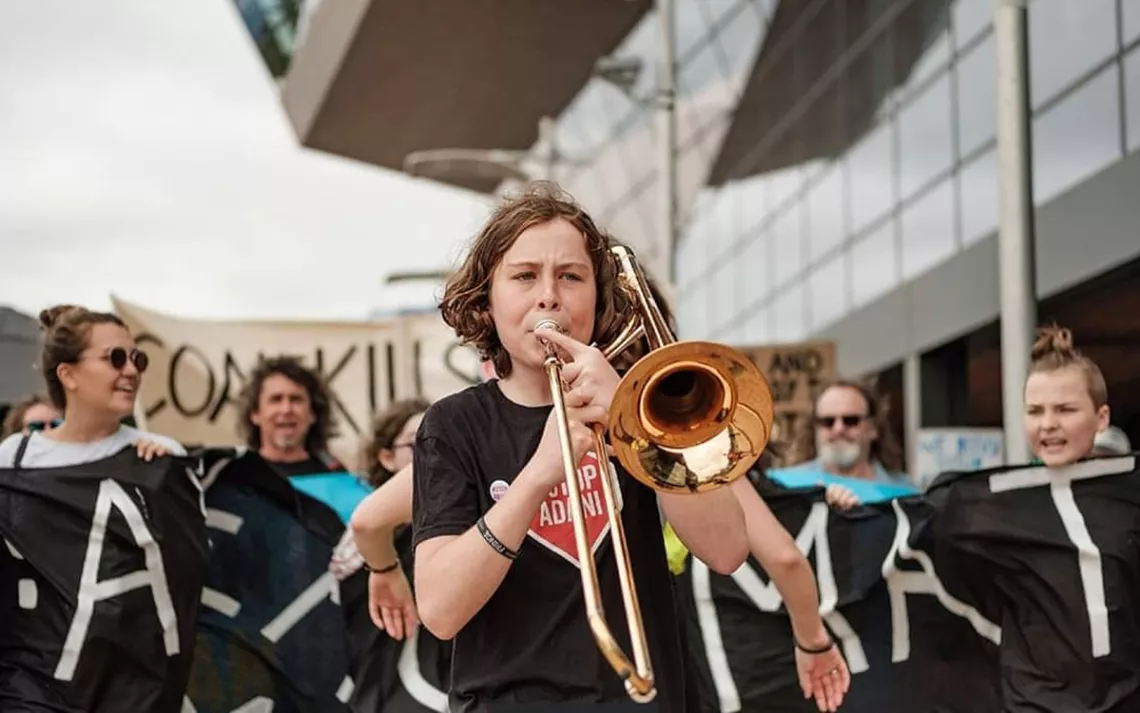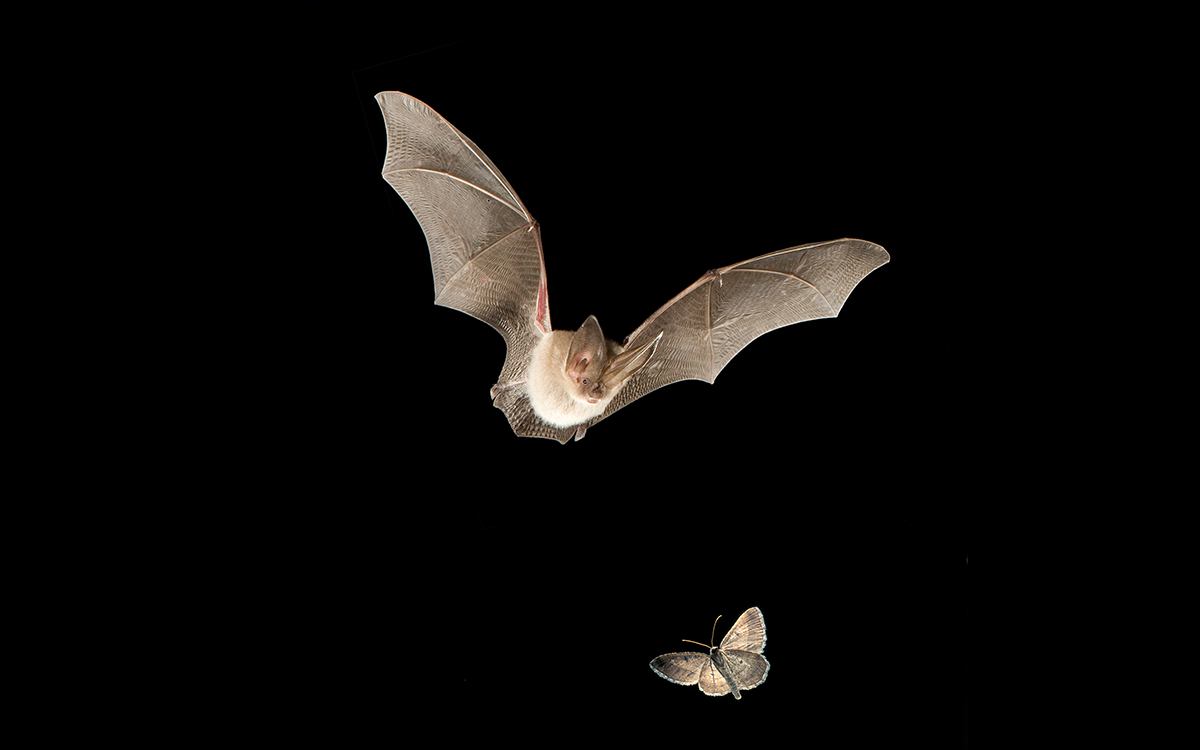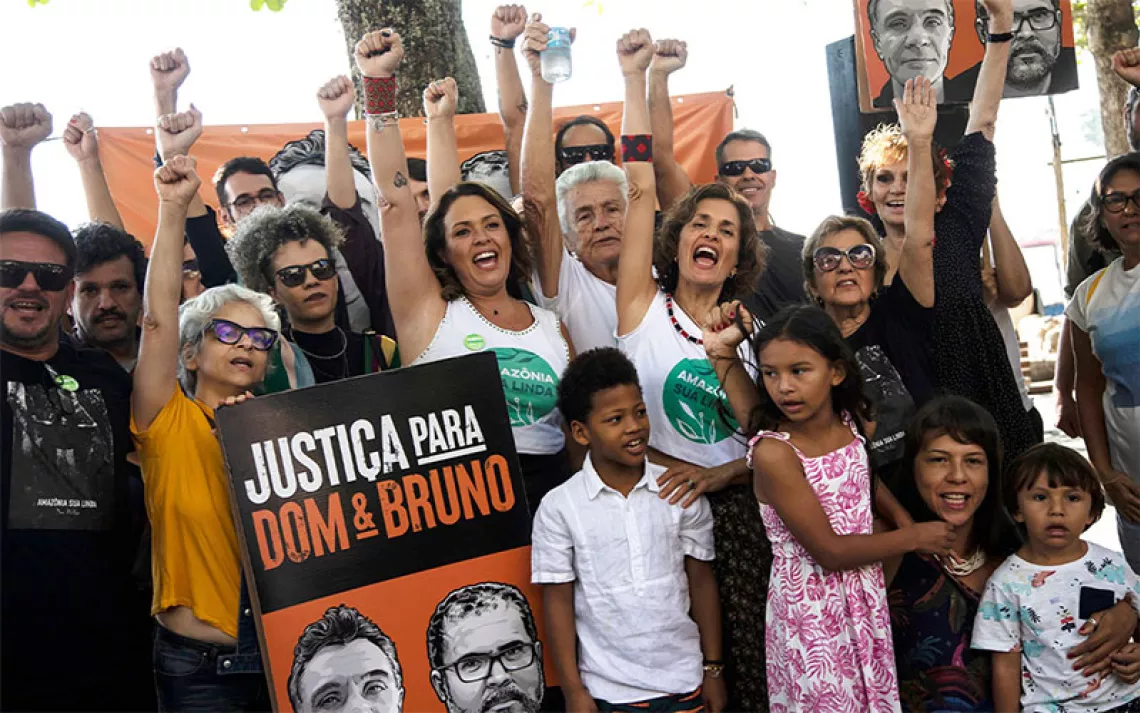The Kids Are on Strike
These Australian teens are refusing to go to school until adults do something about climate change

Zel Whiting | Photo courtesy of Australian Youth Climate Coalition
In Australia, thousands of children, ranging in age from five to 18, organized a walkout of their classrooms on November 30 in protest of adult inaction on climate change.
The group was inspired by a 15-year-old from Sweden named Greta Thunburg, who refused to go to classes and protested outside the Swedish parliament for a full three weeks last fall, urging the Swedish legislature to take action on climate change. At a speech at COP24, Thunburg said that the leaders and diplomats at the conference “weren’t mature enough to tell it like it is.” Thunberg has since returned to school but still reserves every Friday for strikes.
The Australian group, which calls itself School Strike 4 Climate, is planning more marches and protests throughout December and into 2019. They’ve had some success with getting adults' attention—they met with Australia’s shadow minister of climate change and energy, Mark Butler, and encouraged him to stop the Adani coal mine, a massive coal project planned for Queensland, in the Northeast of Australia.
Sierra sat down with three School Strike 4 Climate organizers from Adelaide—Zel Whiting (13), Deanna Henderson (15), and Doha Khan (17)—and talked about their goals, their successes, and what they want to say to their country’s prime minister.

Zel Whiting and Doha Khan | Photograph courtesy of Australian Youth Climate Coalition
Sierra: How did you get involved with School Strike 4 Climate?
Doha: I read Greta’s story, the girl in Sweden who inspired our movement. I answered the event on Facebook, and I got an email from one of the national organizers, and got added from a group chat from there.
Zel: I got involved from Facebook as well. I went to an event for young people who might want to be involved in an organizing committee, for recruiting people and putting up posters and such as well, and I put my hand up. I got added to a big group chat and that is how I met Deanna and Doha.
What have been the successful moments so far, and what would you say you still want to do?
Zel: One successful moment we had was the turnout we had for the Adelaide rally here in South Australia. We had between 300 and 600 people; that was really good to see. All around Australia we had 15,000 students. It really took off, even though it just started with one girl in Sweden.
Doha: Adelaide is a really small city, and we don’t usually get that much of a turnout.
Deanna: I also think a success is that people are telling politicians about us and taking notice. They are seeing how much we care about this.
What are your big-picture goals for your movement?
Doha: We want our politicians to move to 100 percent renewables by 2030.
Zel: Currently our government only has a goal of 45 percent. That is not enough if we are staying below a 2 degree rise in temperature.
Doha: We also want them to not open any more fossil fuel plants. We want commitments for sustainable energy.
Zel: Adani is a really big coal mine planned for Queensland, and it will threaten a lot of wildlife and the ecosystems there, so we are really concerned about that.
Doha: Water access is also involved. They want access to basically an unlimited amount of water underneath Australia, and that will take water away from farmers in the area.
Zel: Queensland is in a drought at the moment, so the fact that this company could have unlimited water is a really big problem. Under Queensland is something called the Great Artesian Basin. And farmers have restrictions on how much they can use of that so there is water, even during times of drought. Adani wants to use it all.
They wouldn’t have restrictions?
Zel: They could take as much as they want. And considering the size of the mine, they will run it down.
Doha: That is a proposal they put towards parliament, so it hasn’t been decided yet, but it is outrageous that they would even suggest getting unlimited access to the water that sustains our country.
Are you planning on striking from school again any time soon?
Doha: Yes, we have another strike planned for March 15. We are planning on having it coincide with a whole bunch of other, global strikes. I think there are some in Sweden and a bunch of other Australian capital cities.
That will be a few months before our election again, and so we want to bring climate justice and the climate movement to the forefront of the election.
What kind of organizing structure does your movement have?
Doha: This is a really grassroots movement. We haven’t got an official organization. It’s a bunch of ordinary people, coming together through Facebook and things like that.
Zel: It is based on a small organizing committee of 10 to 20 people. Once each state or territory has a group together, they organize themselves. Each group has got an organizing committee, which is basically just a group chat on messenger. We run workshops to make banners for rallies. We speak to the AYCC, the Australian Youth Climate Coalition, giving media training workshops for kids who will be speaking to politicians.
Did you enjoy organizing with people from different ages and different schools?
Zel: Definitely. It hasn’t just been high school kids. It’s been younger kids too. We have kids as young as five coming along and university students as well. It is really a wide movement. We had a seven-year-old give a speech at the rally. She did great.
Does the climate change issue seem more urgent in Australia, because of the geography and location of your country?
Doha: The reason this issue is quite urgent for Australia is because we are quite a dry country. We have been experiencing more severe droughts over the years, and currently we are experiencing one of the worst droughts. This issue is close to the heart of many Australian schoolchildren because we have seen the farmers struggle.
Zel: I think strikes should be specific to the place. I am not sure what other places are striking about, but in Australia, we want to stop the Adani coal mine and other mines that are planned, because it is happening in Australia and it is going to specifically impact us in the short term. Obviously climate change will impact everyone, but we are focused on things that are close to home. I am sure that is what other countries are doing too.
Deanna: We are focused on local issues because there is a lot that Australia can do, but it is definitely also a worldwide issue because we only have one atmosphere. All countries need to work together to protect it.
Have your families supported your activism?
Zel: My family is very supportive.
Doha: My dad doesn’t know that much about the climate, but once I told him about our movement, and the severity of the inaction from our government and politicians, he was really on board too. He couldn’t believe the lack of action being taken.
Deanna: My parents are supportive, but I know my friends have parents that have not been nearly so supportive. Not everyone was as lucky as me and able to have great parents like that.
Have you had anyone say you should be in school instead of skipping to protest?
Zel: The prime minister, the leader of our country, said we should be in school and shouldn’t be skipping. We have had a lot of people discouraging us.
Someone told me that the only thing we will learn from striking is how to stand in social security lines. I wouldn’t be surprised, though, if these things that our politicians are saying will just make more of us want to be involved.
It sounds like this work feels sometimes more important than school. If you have to skip school to go to protests, you do that.
Zel: We see it more as a sacrifice. We are sacrificing a day of our education to show the leaders how important this issue is. Most of the kids look at it that way.
It doesn’t sound like you’ve been satisfied with the response from politicians so far.
Doha: Not at all. Our prime minister brought a piece of coal into parliament and praised it, saying it was such a good source of energy. He is completely ignoring the impact of C02 emissions on the atmosphere and climate change. We have a prime minister who is ignoring science and ignoring facts, putting our future at risk.
Zel: In Parliament, in front of everybody, on national media, he said he didn’t support youth striking. That we should stay in school. That children should get educated and not protest. It’s pretty dodgy.
If you could talk to the prime minister, what would you say to him?
Doha: I would ask him to put the long-term future of our climate and our planet ahead of short-term profit. That’s what I would say.
Zel: I would also say that our time is coming, that we are going to be the leaders. The decisions he is among won’t benefit him. We are going to start making changes.
Doha: We are going to be voters in a few years. Discouraging us and putting us down won’t benefit the Labor party at all.
Does it feel unfair that politicians are making decisions that you don’t get to have a voice in?
Zel: Definitely. I understand that voting is supposed to be the age of maturity, when we understand politics, but children understand climate change. It’s pretty simple. Even though we can’t vote, children striking all over the country sends a pretty strong message that we aren’t in support of this, at all.
Deanna: What’s really unfortunate is that the people that are in power, and that have been in power in the past, aren’t the people who are going to have to go through the rest of their lives dealing with the effects if they don’t take action.
We can’t vote now, but we will be able to vote very soon. And by then we will be able to have an effect on them, in spite of what they are saying about our strike.
 The Magazine of The Sierra Club
The Magazine of The Sierra Club



